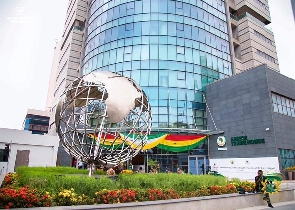 African Continental Free Trade Area (AfCFTA)
African Continental Free Trade Area (AfCFTA)
Dr Fareed Arthur, National Coordinator, of the African Continental Free Trade Agreement (AfCTA) office, has urged Civil Society Organisations (CSOs) to hold African leaders accountable to remove trade barriers and enhance the effective implementation of AfCTA in the region.
He said the Guided Trade Initiative, which was launched two years ago by the AfCTA Secretariat with support from the National AfCTA Coordination Office, had brought several challenges that needed to be resolved.
“These challenges include issues with standardisation, the prevalence of non-tariff and technical barriers, and legal contradictions at country levels,” he said.
Dr. Arthur emphasised that CSOs had the vested interest and capacity to hold African leaders accountable to push for the removal of trade barriers that prevented Africa from realising its full potential.
He said this at a side event to commemorate the 20th anniversary of the Economic, Social, and Cultural Council (ECOSOCC), which was held in Accra. The anniversary was under the theme: “Celebrating Two Decades of Citizen Engagement and African Solidarity.”
The event also featured a panel discussion on the topic “Exploring the Role of Civil Society to Accelerate the Implementation of AfCTA.”
He said presently, CSO’s role in the evolution of AfCTA had been more reactive than proactive, adding that the engagement of CSOs in shaping the negotiations had been marginal, thus the need to change.
The National Coordinator noted that CSOs had critical roles in ensuring the successful implementation of AfCTA, which included creating awareness, educating policymakers, and building support for its success.
He said CSOs could play a vital role in promoting gender equality and empowering women entrepreneurs to participate in the AfCTA.
“Women entrepreneurs face many barriers to trade, including limited access to finance, information, technology, and markets. Civil society organizations can advocate for policies that promote gender equality and provide support and training to women entrepreneurs to help them fully participate in AfCTA,“ he said.
Nana Asantewa Afadzinu, Executive Director West Africa Civil Society Institute(WASCI) called for the integration of local communities and the informal sector in the implementation of AfCTA.
“Even more importantly, we want to ensure that the voices of local communities are heard and considered in the implementation strategies for them to engage at the grassroots level,“ she said.
She said CSOs must ensure inclusivity in the implementation of the agreement by ensuring that they advocate for policies that would empower women and promote their participation in trade activities in the region.
The African Continental Free Trade Agreement (AfCTA), which was inaugurated in 2021, stands as a cornerstone project of the African Union Agenda 2063.
Its primary objective is to establish a unified continental market for goods and services, facilitating the free movement of business and investments.